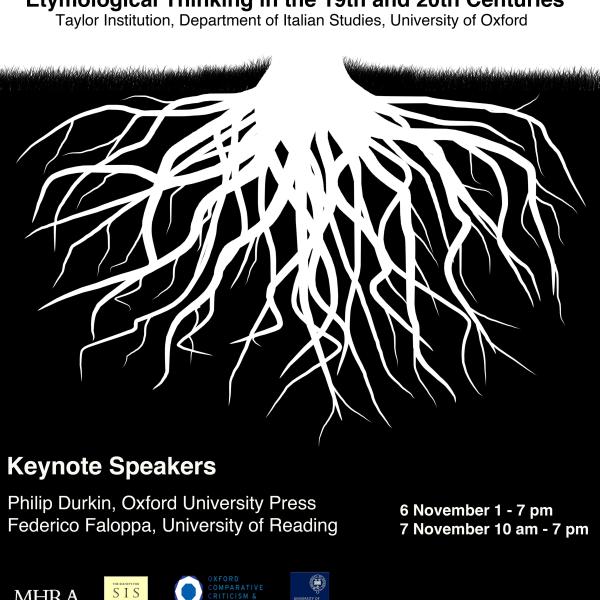
The Italian Department of the University of Oxford is pleased to announce a two day interdisciplinary conference on Etymological Thinking in the 19th and 20th Centuries which will take place at the Taylor Institution the 6th and 7th November.
Etymology becomes a distinctive feature of intellectual and literary culture in the 19th century, remaining one throughout the 20th century. Interest in etymology characterizes the development of linguistics, philology, and literature. Its powerful but also problematic status prompts writers and intellectuals of different backgrounds to explore etymology in relation to such essential notions as temporality, history, and memory, as well as to recast questions of kinship and diversity between languages. At the same time, this new “etymological thinking” has played a significant role in shaping collective identities, ideologies, and psychologies.
The conference will involve literary scholars, experts on cultural studies, philologists, classicists, linguists and experts in translation. Papers will investigate topics such as etymology as a literary device in different genres, the relevance of etymologies to the construction of sense in fictional or autobiographical narratives and in poetry; etymology and language planning; writers’ and intellectuals’ involvement in lexicographic and etymological work; etymological dictionaries; folk etymology; learned/popular lexicon; etymology and theories of language and language change; the history of particular languages, the political use of etymology. The keynote speakers, Philip Durkin and Federico Faloppa, will initiate an interdisciplinary discussion of how etymology and its history are shaping our contemporary thinking.
Please register here.
For any other information, you can contact us at: etymological.thinking@mod-langs.ox.ac.uk.
The Organisers
Dr Teresa Franco, Prof Nicola Gardini, Dr Cecilia Piantanida